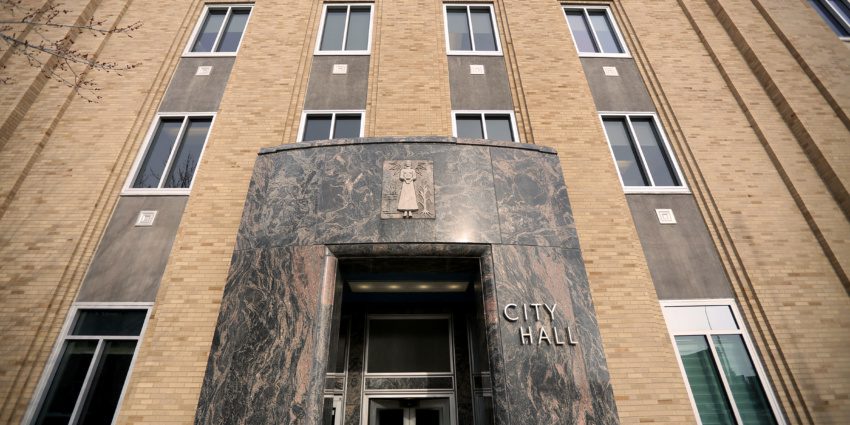Businesses and nonprofits: Consider these guidelines this election year
June 7, 2018
This paid piece is sponsored by Woods, Fuller, Shultz & Smith PC.
By Siri M. Buller, attorney
An election year offers both for-profit businesses and nonprofit organizations the opportunity to engage on the issues they care about in a number of ways, whether by speaking out on those particular issues or by engaging political candidates. However, any type of organization that becomes involved in an election campaign needs to be aware that political involvement is a highly regulated activity at the federal, state and even local levels. The following offers guidelines to be aware of when going about election-year activity.
Federal campaign finance law
For both businesses and nonprofits, federal election laws govern exchanges between the entity and the candidate for federal office. For example, most would consider providing money to a campaign to be a “contribution,” as defined by the law. But the reality is that the federal law defines “contribution” as providing “anything of value” for the purpose of influencing any election for federal office. This can mean many things, such as allowing a federal candidate to place signs in a yard or window, or providing office space for the campaign to use — either of which would qualify as in-kind contributions to the candidate. It is also important to be aware of inadvertent contributions, which might be made through reimbursement for an employee or vendor’s contribution or through membership dues to an association that allocates a portion of dues to their political action committee.
While contributions are something of value given to a candidate’s campaign or to a political committee, “expenditures” are treated differently under the law, as the spending by the corporation is not controlled by the candidate. If a candidate requests or collaborates in the spending, the expenditure is treated as an in-kind contribution because it is “coordinated” with the candidate. But if spending is done without any candidate involvement, the expenditure is “independent.” This is a significant distinction because while contributions have limits, independent expenditures do not. Just be aware that making independent expenditures will require the corporation to file reports with the Federal Election Commission, which, of course, are publicly disclosed.
Regarding contribution limits under federal law, individuals may only contribute $2,700 per election to a federal candidate. This limit applies separately to each federal election in which the candidate participates, including a primary, general, runoff and special, which are each considered a separate election with a separate limit. Additionally, federal candidates who lose a primary election do not have a separate limit for the general. Thus, if a candidate accepts contributions for the general election before the primary is held and loses the primary, the candidate’s campaign committee must refund the general election contributions within 60 days of the primary.
For businesses, it is most important to be aware that corporations may not make contributions to federal candidates or political committees at all. Keep in mind that this applies not only to monetary contributions, but also to anything of value provided to a candidate in-kind. Corporations, however, are allowed to form PACs to make limited contributions.
The prohibition on corporate contributions is especially important considering the potential for fundraising at the office. Again, corporations may not contribute money, goods or resources to federal candidates or campaigns. So when any employee uses corporate resources for the benefit of a candidate, there is an immediate possibility of an illegal corporate contribution. As a result, executives and lobbyists should not raise funds for candidates from the office or the corporation’s facilities and must avoid using company resources or other employees for fundraising activity. Also note that lobbyists registered under the Lobbying Disclosure Act must report their personal political contributions to federal candidates on the LD-203 twice each year.
Finally, if you have an employee who is also a candidate for federal office, it is advisable to set clear boundaries about how the employee continues to do his or her job while also running a campaign. For example, consider whether the candidate wishes to use his or her assistant for both the campaign and his or her job, use his or her corporate contacts, hold campaign staff meetings in the office, use paid time off or take a leave of absence, or use colleagues to support the campaign. Also consider whether other employees wish to assist the candidate in campaign fundraising.
South Dakota campaign finance law
At the state level, it is common and often worthwhile for a local business to interact with a candidate, whether for governor, the South Dakota Legislature or another state office. South Dakota’s campaign finance rules are not as restrictive as the federal ones in terms of the electoral activity of businesses. Under South Dakota law, any entity may make contributions to a state candidate committee, PAC, political party or ballot question committee, whether via money or in-kind. These contributions, however, are subject to limits; for example, a business entity may only contribute $4,000 to a state candidate per year, whereas the federal contribution limits for individuals are per election. Entities also may contribute up to $10,000 to a PAC or a political party per year, and have more freedom when it comes to ballot question committees, as there are no limits on those contributions. Note, however, that entities may only contribute up to $1,000 per year to a legislative or county candidate.
Under South Dakota law, businesses also are allowed to create PACs or ballot question committees. Upon formation, of course, that triggers reporting obligations on behalf of the committee. South Dakota PACs may make unlimited contributions to any candidate, other PAC, ballot question committee or political party. They also may accept contributions from individuals, candidates, entities, PACs and political parties. Ballot question committees may make contributions to any PAC or statewide ballot question committee and may accept contributions from individuals, entities, candidates, PACs, ballot question committees and political parties. Be aware, though, that before making a contribution to a ballot question committee, an entity must disclose several pieces of information to the committee, including the name and address of each owner, director and officer of the entity.
Just as under the federal law, South Dakota law allows corporations to make independent expenditures, or “independent communication expenditures,” as they are referred to in the statute. Independent expenditures made for a state candidate are subject to reporting requirements with the secretary of state.Keep in mind, certain municipalities in South Dakota have adopted their own campaign-finance limits for local elections. Where these ordinances exist, they override the state statutes for contribution limits in local races.
Nonprofit considerations
Finally, it is especially important for nonprofit organizations to pay attention to their activity during an election year. Section 501(c)(3) organizations are absolutely prohibited from engaging in activity that would support or oppose a candidate for public office at any level of government. The penalty for violating this prohibition is loss of tax exemption, which would be devastating, of course, for any tax-exempt organization. Organizations recognized as 501(c)(3) entities have to be especially cautious about inadvertently supporting a candidate, as even unintentional support would invite IRS scrutiny. For example, an employee who is volunteering or working part time on a campaign may wish to use the office copy machines or conference call lines to conduct campaign business. This type of use of the organization’s resources potentially would be enough for the IRS to find that a violation has occurred and to penalize the organization.
Section 501(c)(4) social welfare organizations — as well as 501(c)(5) labor organizations and 501(c)(6) trade associations — are allowed to engage in political campaign activity to a limited extent, specifically up to half of their overall activities, but the associated expenditures likely will be subject to tax. As a result, we advise that these organizations track their electioneering activity closely, accounting for all staff time and other expenses, so that all reports are completed accurately and taxes are paid accordingly.
Section 501(c)(3) organizations also are subject to lobbying restrictions and reporting requirements, which are distinctive from the political campaign activity rules. Therefore, it is important for these organizations to be aware of the difference between the two types of activity and to be cognizant of the limitations on both, being sure not to mix their allowable lobbying activity with prohibited political campaign activity. Additionally, although ballot campaign activity is regulated as electioneering under state campaign finance law, it is considered lobbying work under the tax rules. As a result, any nonprofit, tax-exempt entity will need to ensure that each type of advocacy activity is accounted for throughout the year and especially in an election year.
Woods Fuller has experienced attorneys who are able to assist on any of these matters. Visit woodsfuller.com for additional information.







